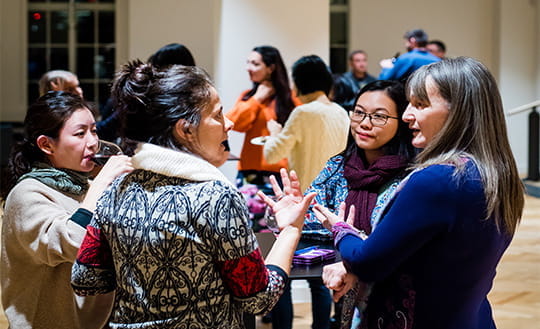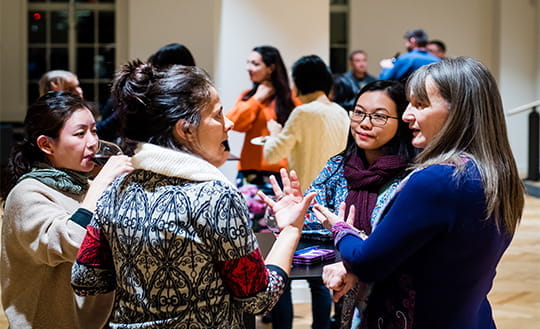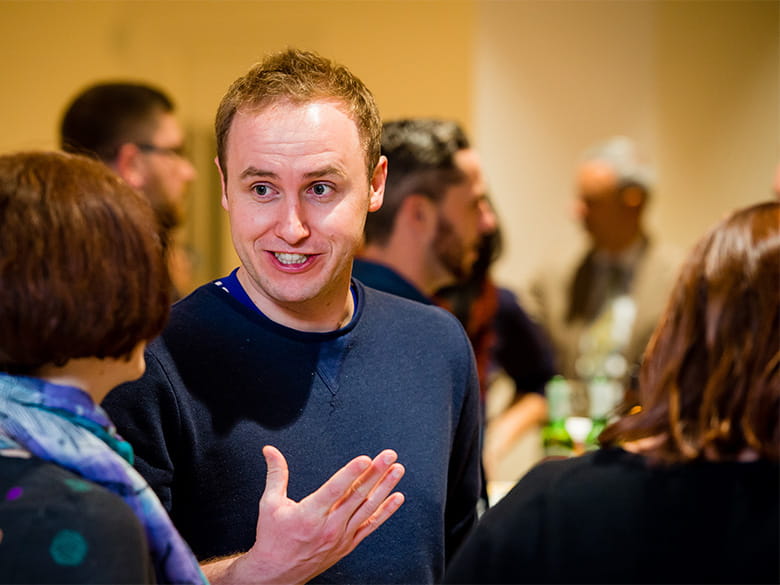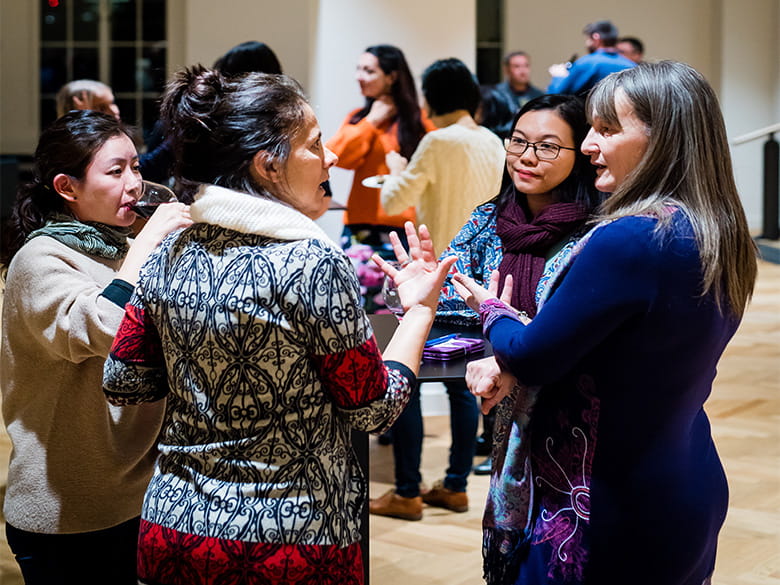We use cookies to improve your online experiences. To learn more and choose your cookies options, please refer to our cookie policy.
- Discover more
- Latest News
- Discover more
- Latest News



Teachers studying for the Executive Masters in International Education by King’s College London got together at the KCL winter residentials to meet their tutors and peers, and to share their experiences in international education
Being a teacher and a student at the same time is no mean feat. This year 31 teachers from our schools around the world are taking on this challenge – by pursuing their professional development through the Executive Masters (MA) in International Education by King’s College London.
Students from batch two of this new programme met in London in December last year to meet their tutors and peers for face-to-face for tuition and seminars covering the first three modules of the MA course, normally taught online. To kick off proceedings, NAE hosted a social evening held at Bush House, King’s College Campus. Students mingled over drinks while enjoying panoramic views of the Thames skyline.
The Executive MA in International Education is specifically designed for teachers progressing through their careers, and provides opportunities for them to share and learn from each other’s experiences of working in international schools. The course is designed to help teaching professionals rethink the advantages and challenges facing them as teachers in globalised, culturally diverse and technologically developed schools. Jim Schofield, a teacher that’s been at the British International School Hanoi for five years, said the course is helping him view his profession differently.
“It has enabled me to view the context of my school through different lenses and apply what I am learning not just within my own classroom, but on a wider scale to help inform and implement school policy based on trends in research,” he said.
Research Methods for International Education is a key module of the MA course. It explores the value of research to help develop school policy and/or practices within a school. The module also delves into the practical side of how to conduct a study, and collect and analyse information.
Matthew Roberts, an IB and IGCSE Geography teacher and secondary school EdTech Coordinator at Collège Champittet says research can open avenues to new knowledge that can be used to make more informed decisions in the best interests of students and the school.
“It is important to ensure that we base our educational decisions on evidence. It is highly motivating to find journal articles related to professional problems that I encounter on a daily basis, they help me to see solutions easily. A school-based study is a unique opportunity to investigate a problem of practice that will be useful for me and my school.”

Another module on the course, Intercultural Education and Communication in International Schools, looks at perspectives and approaches to intercultural education and communication, and gets students to consider how they can develop themselves and their colleagues into culturally competent teachers.
The module also looks into the purpose of an international education, and explores how schools, teachers and curriculum designers can aspire to provide an education that’s tailored to the current and future circumstances that students will find themselves in as they develop into global citizens. Schofield believes schools that are a part of the Nord Anglia’s family have the opportunity to capitalise on and put these aspects into motion.
“Our family of schools are in a unique and actionable position. I believe we do promote the holistic development of our students by offering them many opportunities to explore their own identity and establish their own informed perspectives on cultures other than their own. This is often done through active participation in local and international community service projects and collaboration forums such as Global Campus,” he said.
“Intercultural understanding is seen as a new skill for the 21st century and one which helps us to improve understanding between cultural groups,” said Roberts. “It also better prepares students to operate in the world of transnational global business. International education, therefore, has an important role to play in creating global citizens of the future who are prepared to work in the global marketplace”.

While studying and working has been tough on our teachers, many of them have expressed an appreciation for the opportunity to make strides in their careers and improve their skills.
“Studying for a Masters has bought me back into contact with empirical research, which has been a validating and highly motivating professional experience,” said Roberts. Schofield agrees.
“I won’t lie to you, the workload in addition to your current responsibilities is a factor to be taken into consideration, but the advantages offered by being part of this unique opportunity, in my opinion, far outweigh the downsides.”
Applications for cohort three are open. Click here to learn more about what could be a rewarding and enlightening experience!